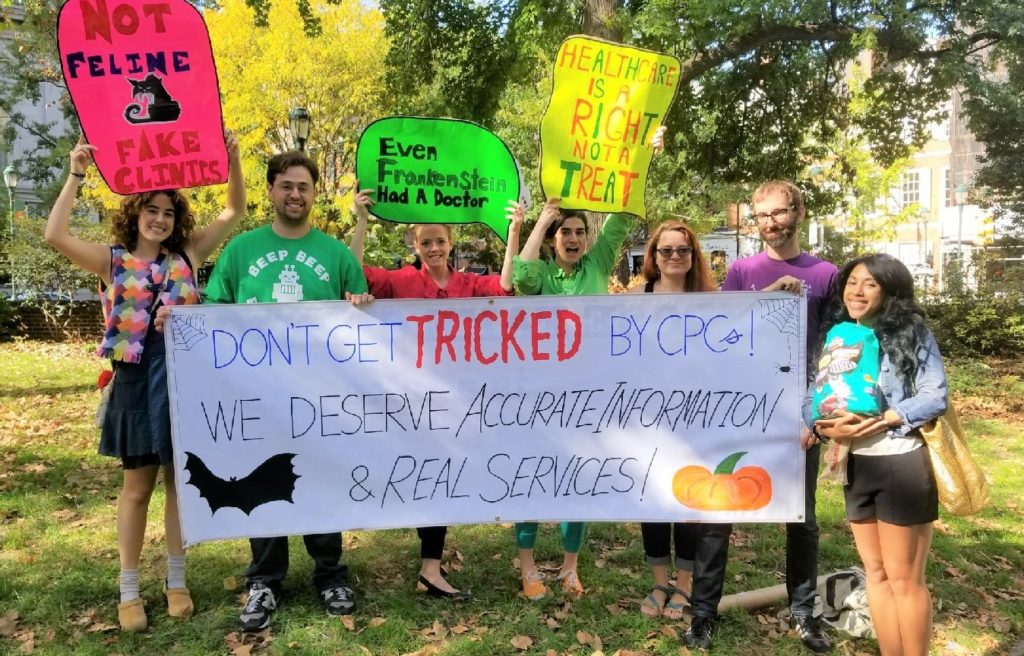
Women’s Medical Fund members raise awareness in October about manipulative tactics used by crisis pregnancy centers
“We strongly believe that taxpayer money should go towards actually benefiting our communities instead of just trying to control people’s bodies.”
— Tabitha Skervin
Women’s Medical Fund was started in 1985 to protect and increase abortion access for people with low incomes. “Last year, we expanded our work to include both direct service and community mobilizing,” says executive director Elicia Gonzales. “We applied for a grant from Bread & Roses to do that initial base-building work and create what is now called the Philadelphia Reproductive Freedom Collective.” The collective has been meeting every other week to learn community organizing skills and deepen their understanding of power and privilege. “Bread and Roses’ support really allowed that group to come to fruition, to cultivate their leadership,” Gonzales says.
The collective determined that their inaugural campaign would focus on crisis pregnancy centers. “We see crisis pregnancy centers as a barrier to abortion because they’re designed to intentionally deceive people, primarily poor people, [to prevent them] from having an abortion,” Gonzales says. “They have names that are very woman-centric and family-friendly, but when a person goes in, they are given misinformation, such as ‘abortion causes cancer.’ They even go so far as to lie about whether or not a person is pregnant.”
There are 18 crisis pregnancy centers in the city of Philadelphia but only six clinics where abortions are performed. “In Pennsylvania we give millions of dollars in taxpayer money to crisis pregnancy centers, specifically Temporary Assistance to Needy Families money,” notes Tabitha Skervin, community mobilization coordinator at Women’s Medical Fund. “We strongly believe that taxpayer money should go towards actually benefiting our communities instead of just trying to control people’s bodies.” Skervin adds that they aim for the city be free of any crisis pregnancy centers, and are building a base to raise awareness and support.
For Women’s Medical Fund, abortion access is a racial and economic justice issue. “Systemic oppression differently impacts communities,” Gonzales says. “The vast majority of people who get abortions in the country are white people, but the vast majority of people who call our helpline are people of color. We’re also continuing to grapple with ways to engage with our callers and really have people with lived experiences be part of the fabric of our work so that the work is not transactional but transformational.”